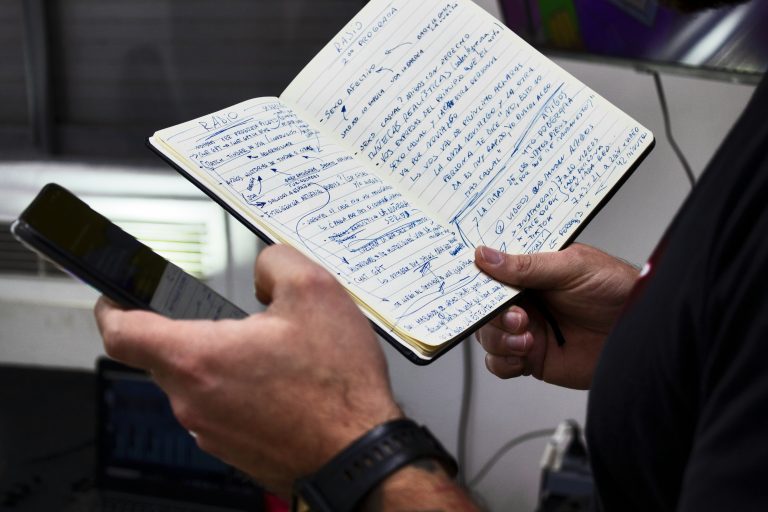Dopamine Addiction and Focus: Destroy Distraction in 90 Days Flat
Your Brain on Dopamine (And How to Break Focus Addiction in 90 Days)
Your brain is hijacked by dopamine addiction and focus destruction. Every ping, scroll, and notification rewires your circuits for weakness. You can’t read for ten minutes without reaching for your phone. You start tasks but never finish them. Your attention span has been shredded by dopamine addiction, and it’s killing your potential.
This isn’t motivation talk. This is biological fact. Your brain has been weaponized against you by apps, algorithms, and endless entertainment designed to keep you weak and distracted. The result? You’re living in a fog of scattered thoughts, unfinished projects, and constant mental fatigue.
But here’s the truth they don’t want you to know: you can take your brain back. The same neural plasticity that trapped you in distraction loops can rebuild your focus into a laser. I’ve done it. Thousands of men have done it. Now it’s your turn.
This isn’t about willpower. It’s about understanding the enemy and executing a precise counterattack. Your future depends on winning this war for your attention.
Dopamine Addiction and Focus: Why Most Men Are Losing the Mental War
Dopamine isn’t the pleasure chemical. It’s the seeking chemical. Every time you check your phone, your brain releases dopamine in anticipation of something new. Not because you found something good, but because you might.
This is the trap. Your brain learns that seeking feels better than finding. So you scroll endlessly, searching for the next hit. Meanwhile, activities that require sustained focus—reading, studying, building something meaningful—can’t compete with the instant dopamine rush of digital stimulation.
Social media companies have teams of neuroscientists whose only job is to make their apps more addictive. They’ve turned your phone into a slot machine that never stops paying out just enough to keep you pulling the lever. Variable ratio reinforcement is the most powerful behavioral conditioning tool ever discovered, and it’s in your pocket 24/7.
Studies on chronic smartphone use reveal something downright alarming: this stuff is physically changing your brain.
Research shows reduced grey matter—a literal shrinking—in the prefrontal cortex, the area responsible for focus, decision-making, and impulse control. And it doesn’t stop there.
Dopamine receptors, the mechanisms that regulate your sense of reward and pleasure, become desensitized over time.
Translation? The more you binge-scroll, the harder it is for your brain to find joy or even muster the willpower to tackle meaningful tasks. This isn’t just psychological—it’s neurological.
Your male attention—your most valuable resource—is being harvested and sold. Every second you spend distracted is profit for someone else and poison for your potential.

How I Lost My Focus (And How You Lost Yours)
Three years ago, I couldn’t read a book. Not because I was illiterate, but because my brain had been rewired to expect constant stimulation. I’d open a page, read two paragraphs, then unconsciously reach for my phone. Every. Single. Time.
I was checking Instagram 50+ times per day. I knew every meme, every trend, every piece of useless information the algorithm fed me. But I couldn’t focus on anything that mattered for more than five minutes. My brain had become a broken toy, constantly seeking the next dopamine hit.
Sound familiar? You’re not broken. You’re hijacked.
The average young man checks his phone 150 times per day. That’s every 6.5 minutes of waking time. Your brain never gets a chance to enter deep focus states because it’s constantly interrupted by the promise of digital stimulation.
You’ve trained your brain to be weak. Every time you give in to distraction, you strengthen the neural pathways that crave instant gratification. You’ve built a superhighway to weakness and a dirt path to discipline.
Daily Digital Overstimulation Is Frying Your Circuits
Your brain wasn’t designed for this. For 200,000 years, humans dealt with maybe 50 people in their entire lifetime. Now you see 50 faces in the first five minutes of scrolling Instagram. Your nervous system is in constant overload.
Studies confirm this: chronic smartphone use shrinks the prefrontal cortex—the center of focus, discipline, and executive function. Cleveland Clinic fully covers dopamine and its benefits and detriments.
Every notification triggers your fight-or-flight response. Your brain can’t tell the difference between a text message and a tiger. So you live in a state of chronic stress, constantly alert for the next digital demand on your attention.
The blue light from screens suppresses melatonin production, destroying your sleep quality. Poor sleep kills focus, memory, and decision-making ability. You wake up tired, reach for your phone for a dopamine hit, and the cycle continues.
You’re consuming more information in one day than your great-grandfather consumed in a month. Your brain is drowning in data it can’t process, leaving you feeling overwhelmed, anxious, and unable to think clearly.
This is brain fog. This is why you feel stupid. This is why you can’t focus. Your neural circuits are fried from overstimulation.

Brain Fatigue Symptoms: The Warning Signs
Your brain is sending you distress signals. You’re just too distracted to notice them.
Mental fatigue hits you like a wall after 20 minutes of focused work. Your eyes glaze over. Your thoughts scatter. You reach for your phone without thinking. This isn’t laziness—it’s neural exhaustion from constant digital stimulation.
Decision fatigue crushes you by noon. You waste mental energy on hundreds of micro-decisions triggered by endless digital choices. What to watch, what to scroll, what to click. By the time you need to focus on something important, your willpower is depleted.
You feel anxious when separated from your phone. This is literal withdrawal. Your brain has become dependent on digital dopamine hits. Without constant stimulation, you feel uncomfortable, restless, and incomplete.
Memory problems plague your daily life. You can’t remember what you read yesterday, but you remember every stupid video you watched. Your brain prioritizes novel, emotionally charged content over useful information.
The Reset Protocol: Rest, Reset, Rebuild
Your brain needs a complete system reboot. Not a digital detox weekend. A full neural reconstruction project that will rebuild your focus from the ground up.
Rest means cutting off the poison. No social media, no entertainment content, no mindless scrolling. Your brain needs time to heal from chronic overstimulation. Like an injured muscle, it needs rest before it can grow stronger.
Reset means creating new neural pathways. You’ll replace digital dopamine hits with real-world rewards. Reading, exercise, learning skills, building things with your hands. Your brain will resist this. Push through.
Rebuild means systematically training your focus like a muscle. Starting with 10 minutes of concentrated work and building up to hours of deep focus. This isn’t motivation—it’s neural engineering.
The process isn’t comfortable. Your brain will throw tantrums like a child having their toys taken away. You’ll feel bored, anxious, and empty. Good. That’s the addiction dying.
Your brain is like a wild, untrained wolf that’s been fed scraps and chaos for years. It’s not broken; it’s just been surviving in the wrong environment.
To reset, you need to bring it back to the wilderness where it thrives. Quiet the noise, remove the distractions, and retrain it to hunt with precision. This isn’t about adding more—it’s about stripping away the garbage and refocusing raw capability.
Most men quit during the reset phase because they can’t handle being alone with their thoughts. They’ve been running from themselves for so long that silence feels like torture. But on the other side of that discomfort is a focus you’ve never experienced.

Going Cold Turkey: What to Expect During Detox
Delete the apps. All of them. Social media, entertainment, news, games. If it’s designed to capture your attention, it needs to go. Your brain will convince you that you need them. You don’t. You need focus.
The first 48 hours are hell. You’ll reach for your phone every few minutes out of pure habit. Your brain will create urgent reasons why you need to check social media. None of them are real. This is withdrawal.
Days 3-7 bring intense boredom. Without constant digital stimulation, real life feels impossibly slow. Books seem boring. Conversations feel tedious. Your brain is recalibrating to reality instead of digital hyperreality.
Week 2 is when the magic starts. You’ll notice gaps of time where you weren’t thinking about your phone. Small moments of mental clarity will emerge like sunlight through clouds. Your sleep will improve. Your anxiety will decrease.
By week 3, you’ll experience focus sessions you haven’t felt in years. You’ll read for an hour without distraction. You’ll work on projects without constantly checking your phone. Your brain is remembering how to concentrate.
The urges never fully disappear, but they lose their power. After 30 days, checking social media will feel like eating junk food—occasionally tempting but ultimately unsatisfying compared to the mental clarity you’ve built.
Training Deep Focus: The Attention Gym
Focus is a skill. Like any skill, it must be trained systematically. You wouldn’t expect to bench press 300 pounds on your first day in the gym. Don’t expect to focus for hours without training.
Start with 10-minute focus sessions. Set a timer and work on one task without any distractions. No phone, no internet, no music with lyrics. Just you and the work. When your mind wanders, gently bring it back. This is mental strength training.
Increase by 5 minutes every week. Week 1: 10 minutes. Week 2: 15 minutes. Week 3: 20 minutes. Your brain will resist each increase. Push through. You’re literally rewiring your neural circuits for sustained attention.
Single-tasking becomes your superpower. While everyone else juggles multiple distractions and produces mediocre work, you focus completely on one task and dominate. Single-tasking isn’t just more productive—it’s a competitive advantage.
Read physical books daily. Books require sustained attention and teach your brain to follow complex thoughts over time. Start with 20 minutes per day. Build to 60 minutes. Fiction or non-fiction—both train focus differently but effectively.
Meditation isn’t spiritual nonsense. It’s attention training. Sit still for 10 minutes and focus on your breath. When your mind wanders, bring it back. This is the purest form of focus training available.

Your 90-Day Attention Reconstruction Plan
Days 1-30: Digital Detox
Delete all social media apps. Use a basic phone if necessary. No entertainment content, no news, no mindless scrolling. Read physical books for 30 minutes daily. Meditate for 10 minutes daily. Your brain will hate this. Do it anyway.
Days 31-60: Focus Training
Reintroduce technology strategically. Use apps with specific purposes only—maps, banking, communication. No feeds, no infinite scroll. Practice 45-minute focus sessions daily. Read for 45 minutes daily. Add physical exercise to rebuild overall brain health.
Days 61-90: Advanced Concentration
Train 90-minute deep work sessions. This is when real progress happens on meaningful projects. Most people can’t focus this long. You can. Read for 60+ minutes daily. Your focus is now a weapon that most men don’t possess.
Track your progress ruthlessly. How long can you focus without distraction? How many pages can you read in one session? How many hours of deep work can you complete per day? Numbers don’t lie.
The men who complete this protocol report life-changing results. Better grades, career advancement, deeper relationships, higher confidence. Not because they learned new skills, but because they can finally focus long enough to master skills.
Days 91+: Maintenance Mode
You’re not cured. You’re in recovery. The modern world will constantly try to steal your attention. Protect it like your life depends on it—because it does. Regular digital detoxes, daily focus training, and ruthless protection of your mental space become permanent habits.
Before-and-After Transformations
Before starting the detox, I couldn’t read more than a page of a book without grabbing my phone. By Day 45, I had finished two novels and was using that regained focus to finally tackle a certification I’d been procrastinating on for years.
Another friend of mine went into this reset overwhelmed and burnt out, unable to stick to any workout routine. By the 90-day mark, he had nothing but laser focus—hitting the gym five days a week and finally achieving the fitness goals he’d been chasing for years.
Then there’s Jack (not real name to protect his privacy), who used to doom-scroll every night until 1 a.m., stuck in a cycle of exhaustion and stress. Now? He’s up by 6 a.m., fully rested, journaling, and already knocking out the most important tasks of the day before breakfast.
These are real results from reclaiming your attention. The transformation is undeniable when you commit.

Choose Your Dopamine Wins Over Digital Distractions
Your brain needs dopamine. The question is: will you get it from achievement or from scrolling?
Real dopamine wins come from completing difficult tasks. Finishing a workout. Reading a challenging book. Building something with your hands. Learning a new skill. Your brain gets the chemical reward, but you also get progress, growth, and strength.
Digital dopamine is empty calories for your brain. It provides the chemical hit without any real-world benefit. You scroll for hours and have nothing to show for it except wasted time and weakened focus.
Start replacing digital hits with achievement hits. Instead of checking Instagram, do 20 push-ups. Instead of watching YouTube, read 10 pages of a book. Instead of scrolling TikTok, work on a project for 30 minutes.
Your brain will resist this exchange at first. Digital dopamine is easier to get than achievement dopamine. But achievement dopamine is sustainable and builds on itself. Digital dopamine is addictive and leaves you empty.
Within weeks, you’ll crave the satisfaction of completed tasks more than the hollow pleasure of endless scrolling. Your dopamine system will realign with productive behaviors instead of destructive ones.
I made an extensive Dopamine Detox Guide that resets your brain into craving real dopamine. You would be doing yourself a favor to read it.

Reclaim Your Mind or Lose Your Future
This is war. Your attention is under constant attack by forces that profit from your distraction. Every moment you spend focused on your goals is a victory. Every moment you spend scrolling is a defeat.
The men who master their attention will dominate the next decade. While everyone else drowns in digital distraction, you’ll have the rare ability to focus deeply on what matters. This isn’t just productivity—it’s a superpower in a world of scattered minds.
Your future self is watching your decisions today. Will you be the man who took control of his mind and built something meaningful? Or will you be another casualty of the attention economy, scrolling your potential away one distraction at a time?
The choice is yours. But choose quickly. Every day you wait, your brain gets weaker and the reconstruction process gets harder.
Start today. Delete one app that drains your focus. Sit down and write your goals for the week. Commit to one hour of uninterrupted, focused work.
Each deliberate action is a step toward reclaiming your mind and building your legacy. The war against distraction starts now—win it.
Your mind is your kingdom.
Defend it.







